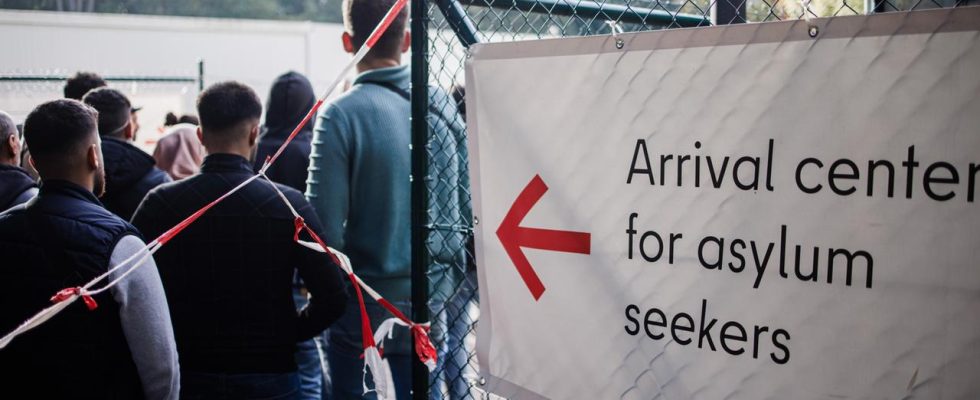There is obviously movement on the topic of migration policy: the evening meeting between Chancellor Scholz, the state leaders and CDU leader Merz was “constructive” and “in a good atmosphere” – even the Union says.
The evening meeting in the Chancellery could be the start of more cooperation in migration policy. In any case, there were satisfied voices the day after. It is good that there is now movement in migration policy, says Gerd Landsberg. As general manager of the Association of Cities and Municipalities, he knows where there are the biggest problems locally. Landsberg has often warned that it is almost impossible to provide for the refugees.
Yesterday, the prime ministers first passed a long resolution paper, then Boris Rhein from Hesse, Stephan Weil from Lower Saxony and opposition leader Friedrich Merz met with Chancellor Olaf Scholz – view from the balcony over Berlin in the evening and dinner with veal schnitzel included.
But above all: movement in the matter, says Landsberg in the Deutschlandfunk. This is certainly due to the results of the state elections, but also to the obvious excessive demands on the municipalities. “We actually need a German pact on migration in Germany: ordering, controlling, limiting, financing. Conversely, people with prospects of staying can be integrated into work more quickly.”
No shortage of new papers
To this end, the leaders of the traffic light government presented a draft law in the middle of the week: for faster deportations and a quicker path to work for those who can stay here. Now the country leaders are also calling in their paper to quickly assign jobs to refugees who are able to work.
There is no shortage of new papers anyway – CDU leader Merz also had one with him last night: He handed the Chancellor “a two-and-a-half-page position paper from us, with 16 measures for German domestic policy alone.”
A good atmosphere and unity at least on the goal, that was Merz’s assessment after the conversation. As the parliamentary managing director of the Union parliamentary group, Thorsten Frei added to “Welt TV” today: “It is of course the case that it is good per se if we talk to each other in this particular crisis situation. And this conversation last night was very constructive atmosphere took place.”
New proposals and new demands
And there were new suggestions too. For example, no longer arguing about safe countries of origin. Instead, asylum procedures could generally be preferred for applicants from countries with a recognition rate of less than five percent.
The countries also reiterated their demand for more money. And they want a nationwide uniform payment card instead of cash payments for asylum seekers.
Landsberg thinks it’s too small; he’s thinking of a comprehensive digital refugee ID card with a payment function. But he also says: From the perspective of the refugees, none of this makes any difference. “If you are being persecuted in Afghanistan and Syria, then you want to leave. It doesn’t matter at all whether you get a payment card, benefits in kind or cash in Germany.”
“That’s a pious wish”
The states also want to complete asylum and court proceedings in just three months. “Yes, that’s a pious wish,” says Landsberg. Ultimately, the states themselves are responsible for this.
So the debates will continue. But the symbolism of wanting to solve the matter together remains from the evening in the Chancellery. Now we need speed, says Hesse’s Boris Rhein: “From my point of view, it would be very helpful if we really did this all in one piece.”
Lower Saxony’s Stephan Weil says they got along well and are close together on the matter. Then the two country heads said goodbye to dark Berlin with an audibly relaxed tone.

